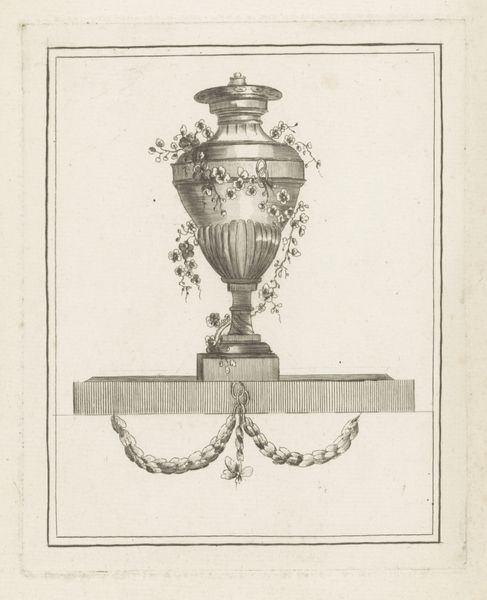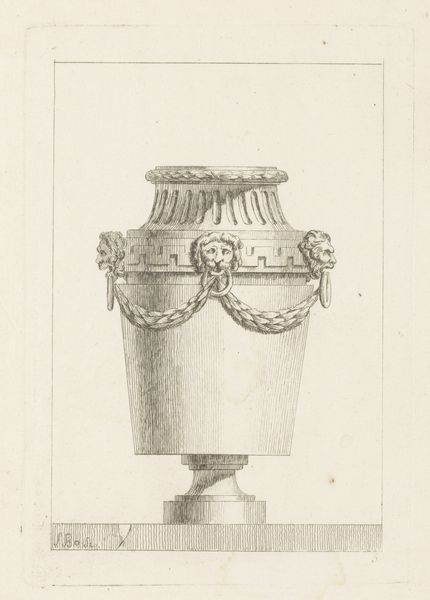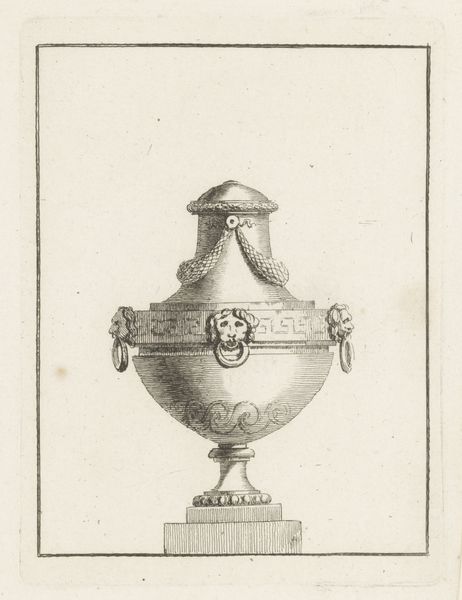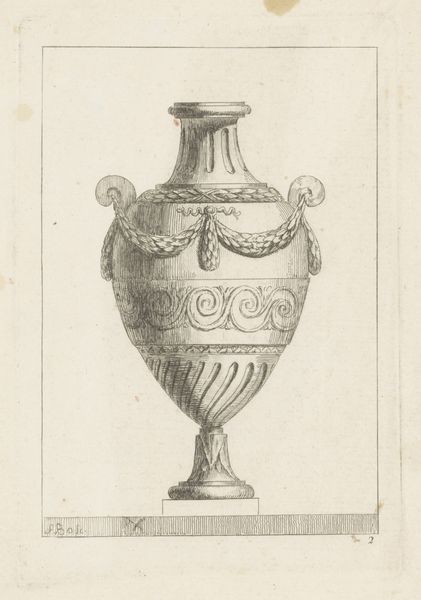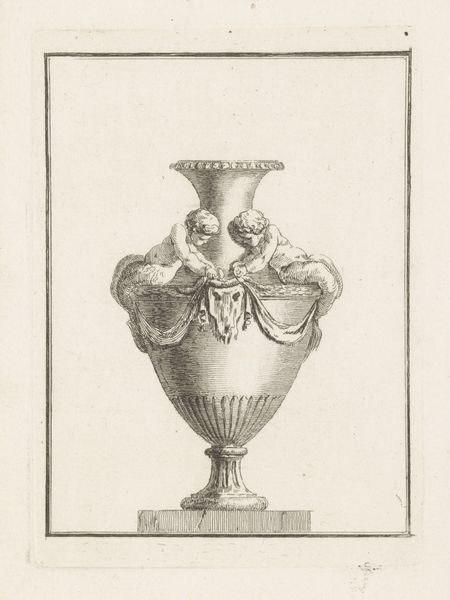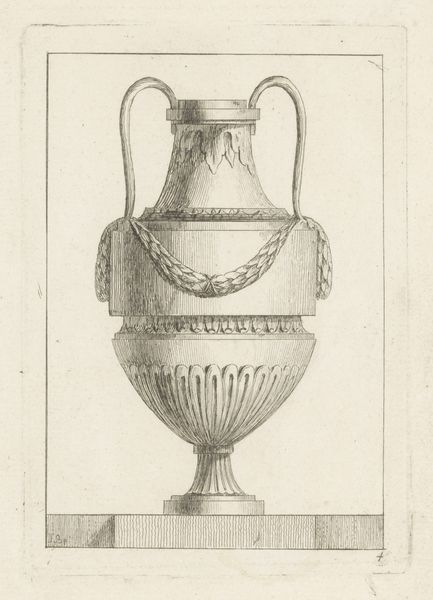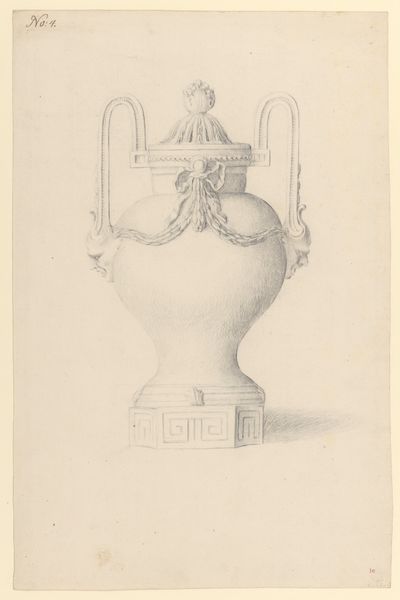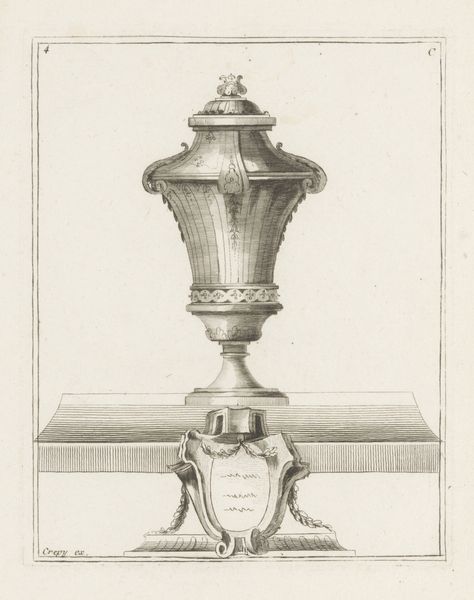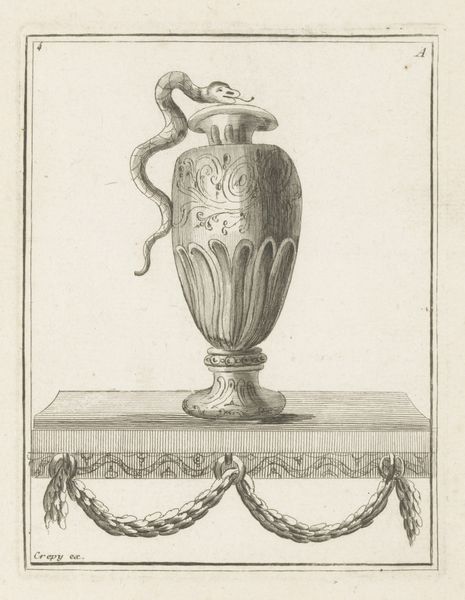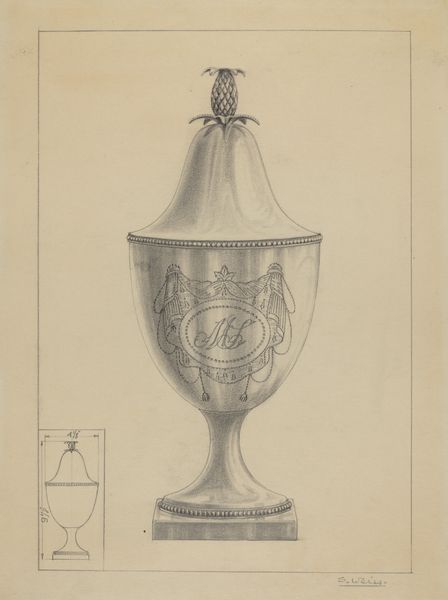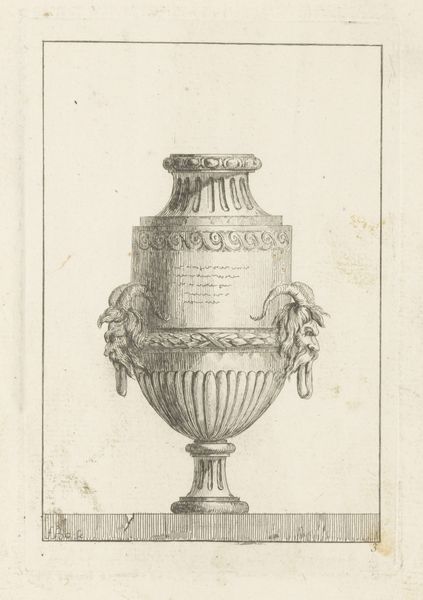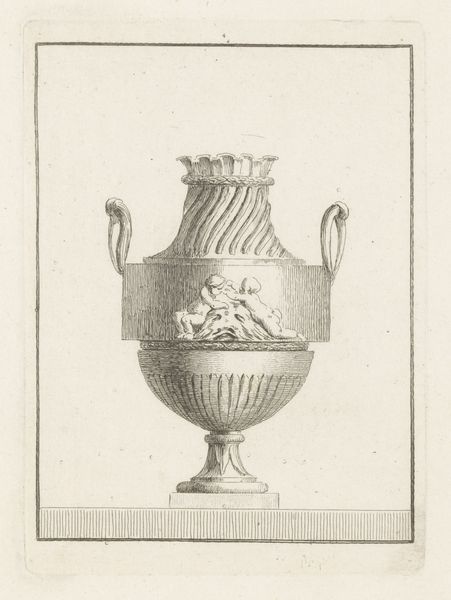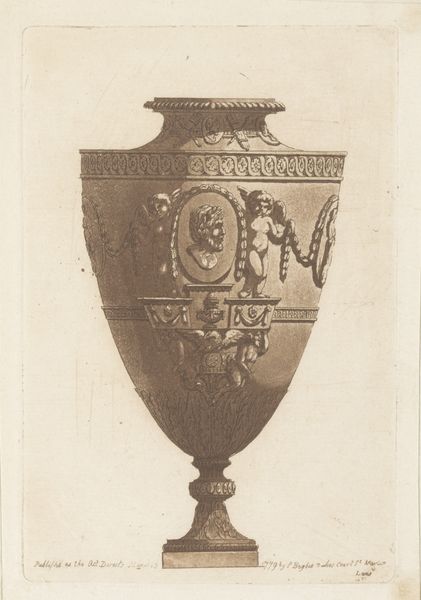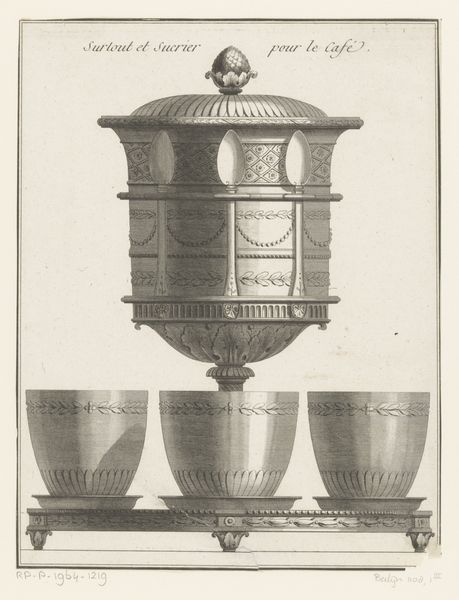
Dimensions: height 137 mm, width 99 mm
Copyright: Rijks Museum: Open Domain
Juste Nathan Boucher made this “Vase with Lion Heads” using etching; an intaglio printmaking technique, somewhere around the mid to late 1700’s. The etching process involves coating a metal plate with a waxy, acid-resistant substance. The artist then scratches an image into this coating, exposing the metal underneath. When the plate is immersed in acid, the exposed lines are eaten away, creating grooves. These grooves hold ink, which is then transferred to paper through a printing press. The medium of etching, with its need for technical skill and mechanical reproduction, reflects the shift towards industrialization of the era. The etched lines define the vase’s neoclassical form, complete with fluted sides, egg-and-dart ornamentation, and of course, the eponymous lion heads. The print’s monochrome palette emphasizes the precise details of the vase, highlighting the engraver’s craft. By focusing on the materials and making of this print, we can better understand its cultural value, and how it blurs the lines between fine art and skilled craft.
Comments
No comments
Be the first to comment and join the conversation on the ultimate creative platform.
